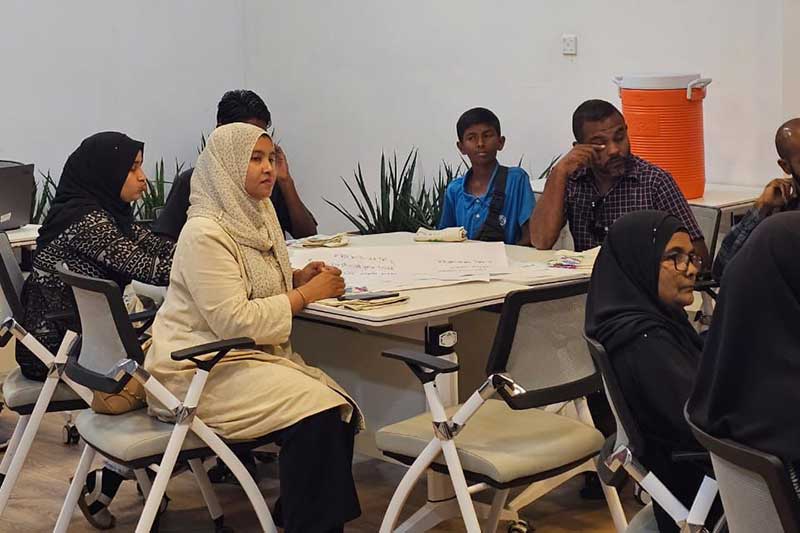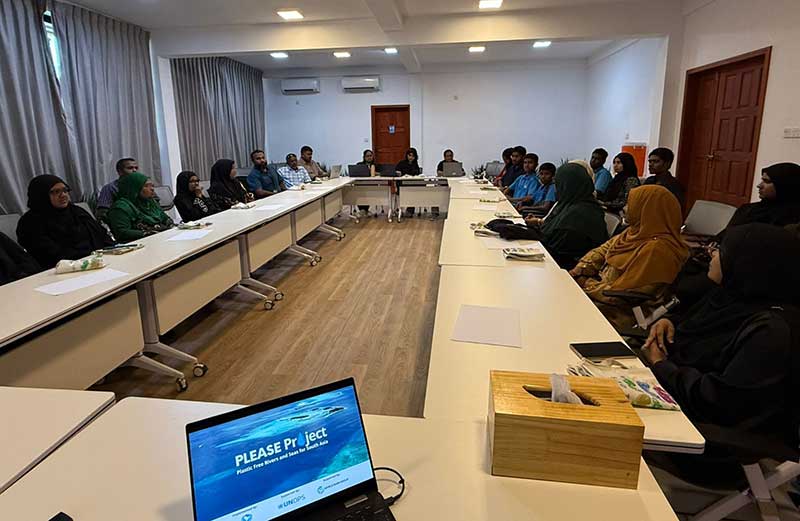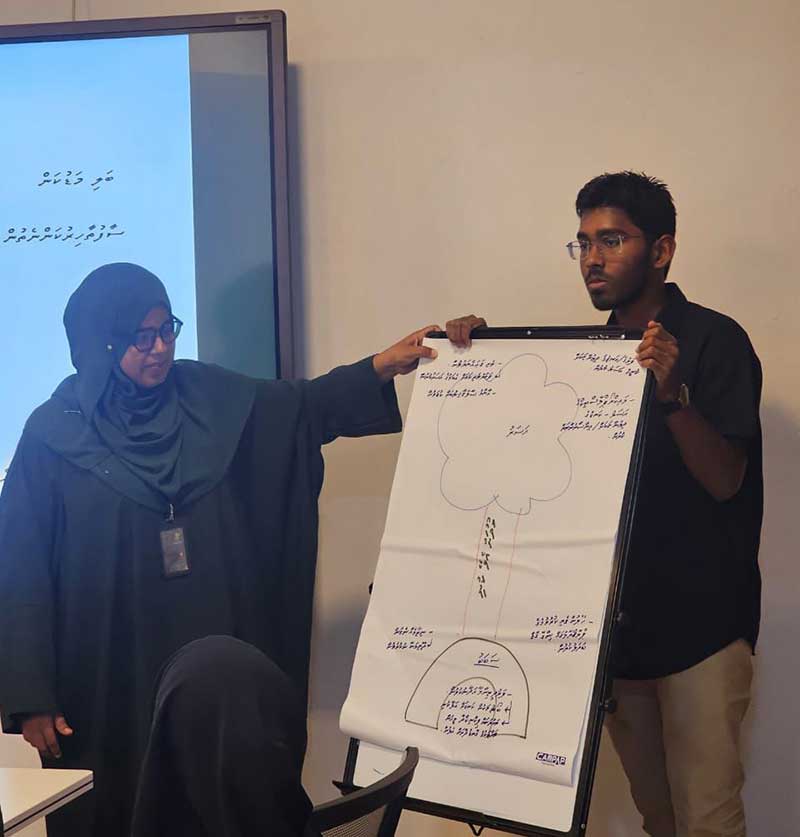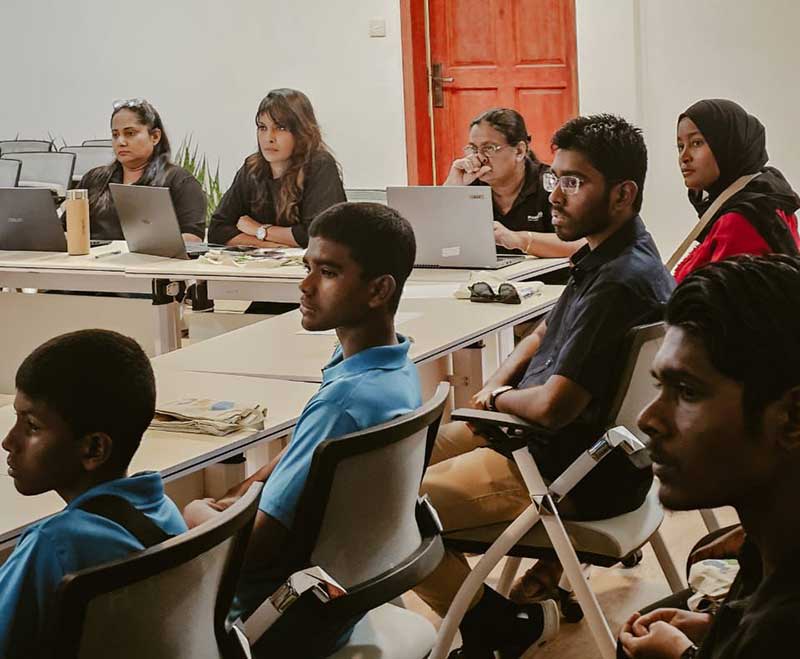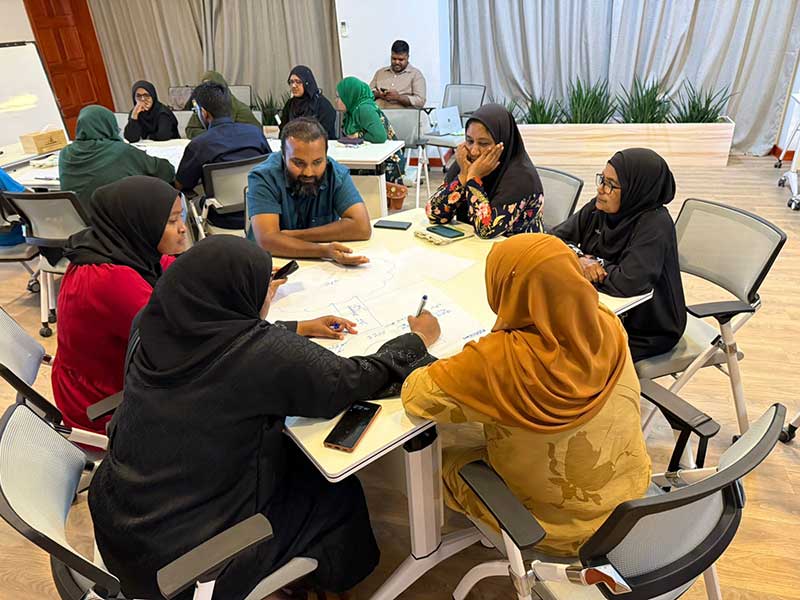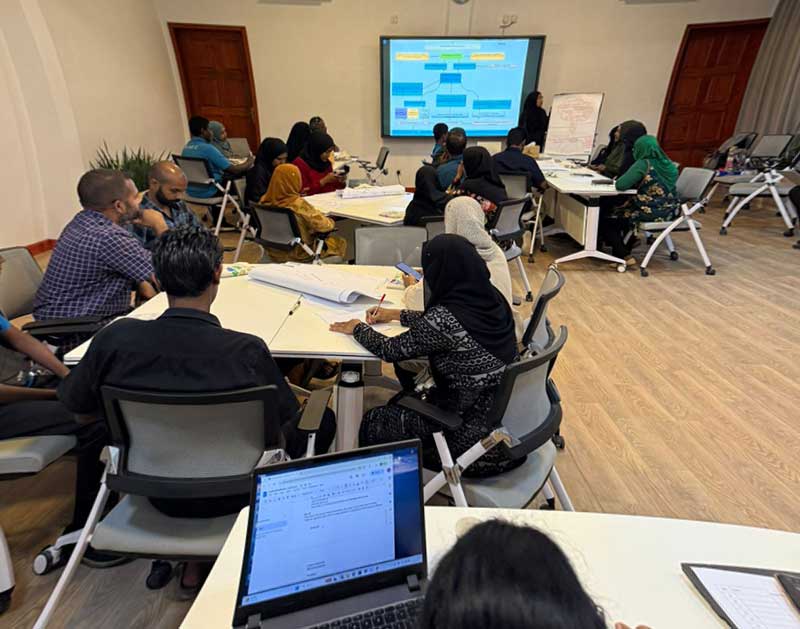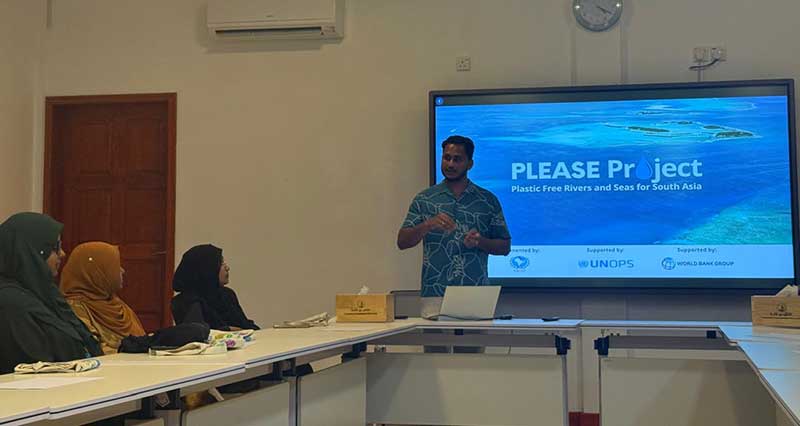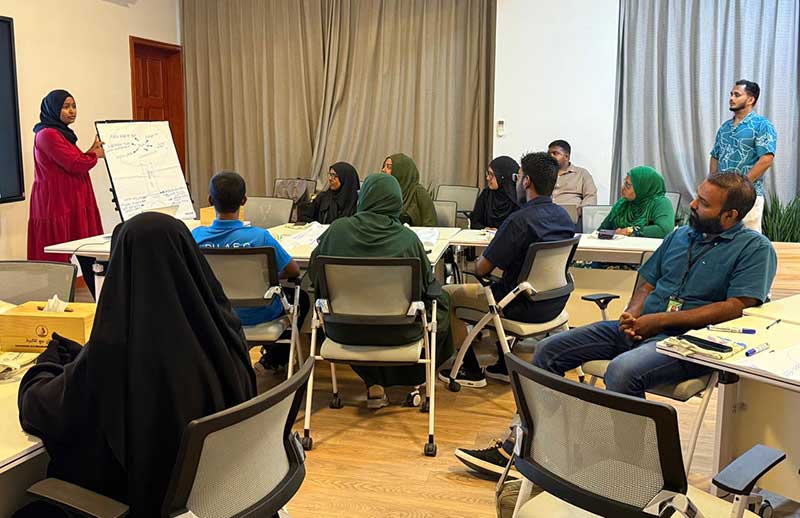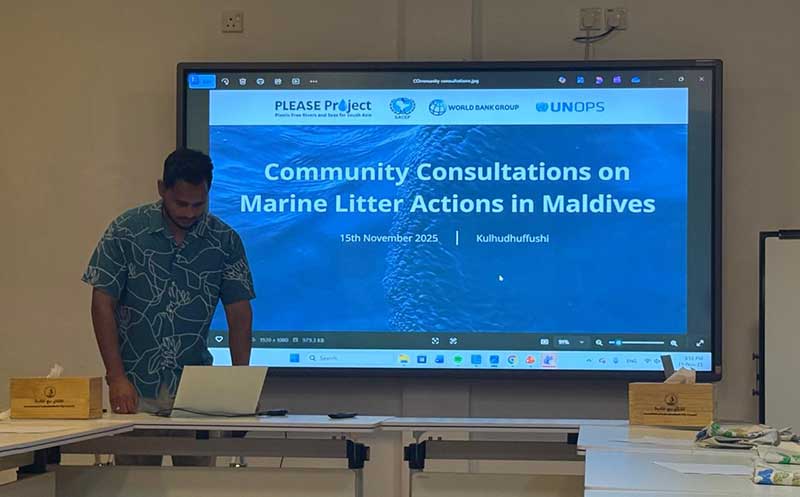November 15, 2025
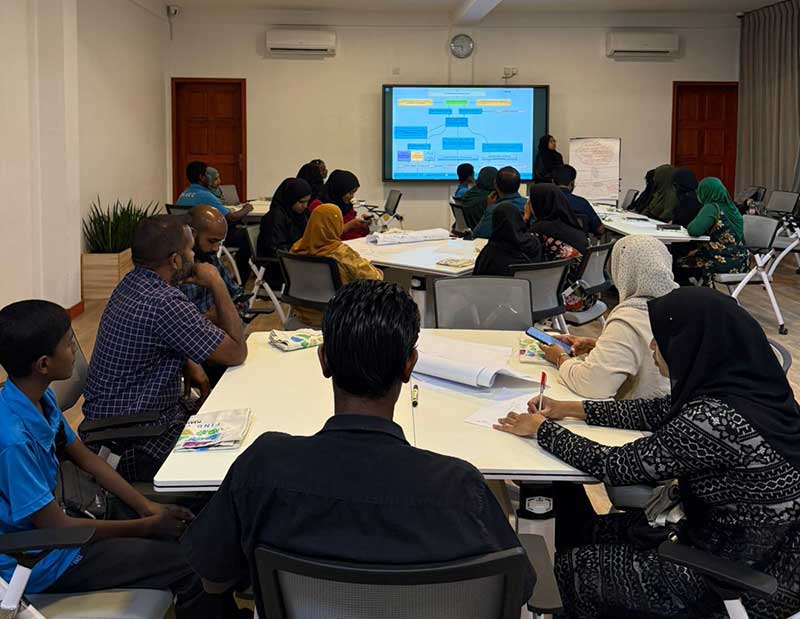
As part of the ongoing activities under the Plastic Free Rivers and Seas for South Asia (PLEASE) Project, a community-level consultation on marine litter was successfully conducted on 15 November 2025 in Kulhudhuffushi, Maldives. The consultation was organized in close collaboration with local stakeholders, with the aim of gathering community perspectives on the impacts of plastic pollution and identifying locally grounded solutions to address this growing challenge.
The session brought together a diverse group of participants, including community leaders, youth representatives, women’s development groups, fishermen, local NGOs, and beneficiaries of ongoing PLEASE Project initiatives in the region. Their active involvement demonstrated the strong local commitment to safeguarding the marine environment and reducing the accumulation of plastic waste along coastlines and in surrounding waters.
Participants shared first-hand experiences of how plastic litter affects daily life—ranging from disruptions to fishing activities and declining coastal cleanliness, to the broader concerns of environmental degradation and public health risks. Community members also highlighted ongoing efforts, such as household-level waste segregation, school-led awareness activities, and locally driven clean-up campaigns. Through open dialogue, they identified several key challenges, including limited waste management infrastructure, the prevalence of single-use plastics, and the need for more accessible and affordable plastic alternatives.
Importantly, the consultation also strengthened the link between local action and regional frameworks. The insights gathered will not only inform national-level consultations but will directly contribute to SACEP’s implementation of both the South Asia Regional Marine Litter Action Plan (MLAP) and the South Asia Seas Programme (SASP). The MLAP provides a coordinated regional roadmap for reducing land- and sea-based sources of marine litter, while SASP offers a long-standing platform for cooperation among South Asian countries on the protection and sustainable management of the marine and coastal environment. By feeding community perspectives into these complementary mechanisms, the PLEASE Project helps ensure that regional strategies are aligned with local realities, and that communities benefit from harmonized policies, shared knowledge, and strengthened regional commitments.
